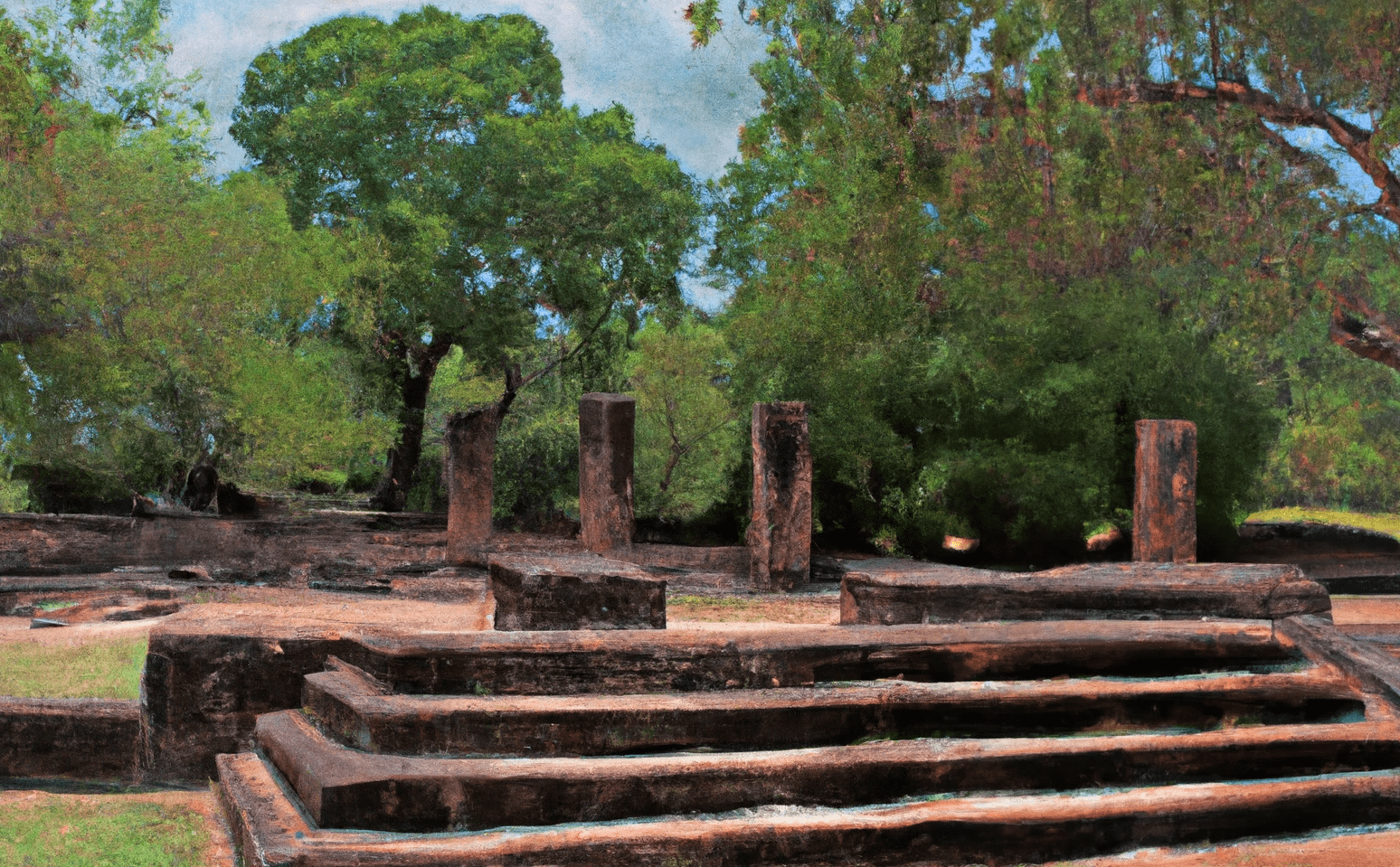Emerging from the wild growth of dry zone vegetation of the ancient city of Anuradhapura are monoliths of old, some standing defiantly, which may seem intimidating to those who gaze upon them. In contrast, others appear as if they are prostrating, succumbing to the forces that seek to make them fall.
It is hard to imagine that these vestigial structures were once expansive halls inside where ministers spoke loquaciously; courtrooms where a king governed his lands; sermon halls from which emanated the sacred words of the Buddha chanted by monks garbed in saffron robes. Time, truly, has not been merciful.
Time.
There has been so much of it since those seats of civilization were built – the grand palaces, lush royal gardens, bustling marketplaces, and thriving villages – which are now reduced to bits and pieces of rubble. Two thousand years following the construction of these sites of heritage, one can hear the light footfalls as the rubber of a slipper hits the stone steps that lead to a palace, steps that once heard the sound of footfalls of a king wearing jeweled sandals.
From such a perspective, it seems truly astounding how those venerated spaces now lay in ruins, their skeletal remains left as the only surviving evidence to prove that they once existed. One can find such places at Anuradhapura, the sacred city of Sri Lanka. Established by King Pandukabhaya in the year 437 BC, over 2400 ago, the city cradled a flourishing kingdom that was made sacred with many stupas that dotted the landscape and made prosperous by its fertile lands. Beholding its grandeur thousands of years ago at the height of its glory would have been quite a marvel. But one can only imagine what it must have been like.
Walking among the ruins and touching the very stones with which the men of those bygone eras built their palaces and ponds would give you a very strange and surreal feeling. Knowing that great kings walked on the very earth you now walk on, occupying the same space where ministers would decide on passing the laws of the land and where plans for conspiracies and coups would have taken place would make you appear anachronistic. It’s an alienating feeling to stand beside those monolithic structures which one could say are almost like portals to another period of time – a period you don’t belong to. But as you walk along what would have been corridors beside broken walls, you could always ponder on what those walls would have witnessed in their time. If only they could speak. One can only wish.
It would be interesting to know what those kings of the past would think if they got to see the proud kingdoms reduced to rubble. To see that what’s left of their once majestic courtrooms, citadels, and shrines are merely a few bricks and lone pillars, their intricate engravings eroded by the elements and centuries of time would be devastating. But however depressing it may seem, the ruins teach us lessons about our insignificance in the world and that we are but minute specks in the fabric of space and time.
Vast expanses of time and space have the ability to make us feel – not surprisingly – very, very small. In doing so, they offer an escape into dimensions different from the ones we inhabit, allowing us to lose ourselves in their powerful and compelling hold. But the feeling of being lost does not give rise to distress or trepidation, as one would normally expect, but to an embrace of soothing calm that encapsulates one’s mind and body. Losing yourself and more importantly, your sense of self and who you are, for a transient moment allows you to enter a realm of escapism, where for that moment of transient bliss, your worldly and mundane worries melt into the ether.
In such moments, it doesn’t matter where you come from and who you are. Your identity is lost, almost like the ruins themselves. The space then becomes a sanctuary of quiet acceptance and a therapeutic retreat from our own tangled identities, which we quite often struggle to reconcile with in relation to the rest of the world. But in gently minimizing the importance we confer on ourselves, we end up minimizing the host of maladies that plague our minds frequently, and in doing so we can extract a semblance of solace and bliss.
You can almost say that ancient ruins hold keys that can open the portals to numerous worlds of discovery and on occasion, to the many unexplored worlds within ourselves.
Image Courtesy: Dall.E 2

